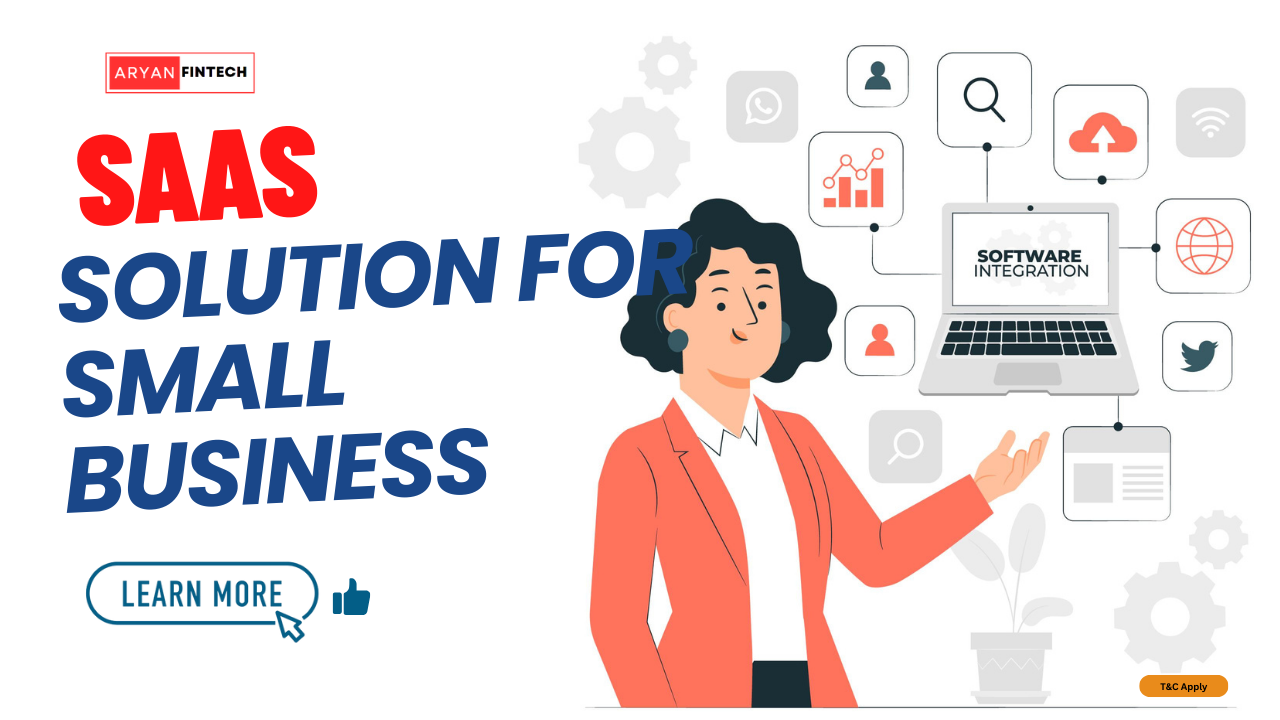In the ever-evolving landscape of business operations, the integration of technology has become imperative, especially for small businesses looking to thrive in a highly competitive market. The digital transformation wave has ushered in a plethora of opportunities, with Software as a Service (SaaS) emerging as a beacon of hope for small businesses seeking to streamline their operations, cut costs, and boost productivity. In this comprehensive guide, we will delve deep into the world of SaaS solutions for small businesses, exploring how they can be the game-changer your enterprise needs to succeed.
Understanding the SaaS Revolution

SaaS, or Software as a Service, is a cloud computing model that has revolutionized the way businesses access and utilize software applications. Unlike traditional software installations that require dedicated hardware and complex setups, SaaS operates entirely in the cloud. This means that small businesses can access a wide array of software applications over the internet, eliminating the need for costly infrastructure and extensive IT support.
Advantages of SaaS for Small Businesses
1. Cost-Efficiency
One of the most significant advantages of SaaS for small businesses is its cost-efficiency. With traditional software, hefty upfront costs are associated with purchasing licenses and hardware. However, SaaS follows a subscription-based model, allowing businesses to pay only for the services they use. This significantly lowers the financial barriers to accessing top-notch software applications.
2. Accessibility and Mobility
In today’s fast-paced world, the ability to access critical business applications from anywhere, at any time, is paramount. SaaS solutions offer unmatched accessibility and mobility. With an internet connection, employees can access the software they need, whether they are in the office, on the go, or working remotely. This flexibility can enhance collaboration and productivity.
3. Automatic Updates and Maintenance
Keeping software up-to-date and secure can be a time-consuming task. SaaS providers take this burden off your shoulders. They handle updates, maintenance, and security patches, ensuring that your business always runs on the latest and most secure software versions. This proactive approach reduces downtime and enhances security.
4. Scalability
Small businesses often face fluctuating needs and growth patterns. SaaS solutions are inherently scalable, allowing you to adjust your subscription as your business expands or contracts. This scalability ensures that you only pay for what you use, making it a perfect fit for businesses of all sizes.
5. Enhanced Collaboration
Collaboration is key to success in the modern business landscape. SaaS programs are created with teamwork in mind. They often include features such as real-time document editing, video conferencing, and project management tools that facilitate seamless teamwork among your employees.
Popular SaaS Solutions for Small Businesses
Now that we’ve established the remarkable benefits of SaaS for small businesses, let’s explore some popular SaaS solutions that are transforming the way enterprises operate:
1. Customer Relationship Management (CRM) Software
CRM software, such as Salesforce and HubSpot, empowers small businesses to manage customer interactions, streamline sales processes, and build lasting relationships with clients. These solutions provide a centralized platform for storing customer data, tracking leads, and automating marketing campaigns.
2. Accounting and Finance Software
Managing finances is a critical aspect of running a small business. SaaS accounting software like QuickBooks and Xero simplifies financial management, helping businesses track expenses, generate invoices, and prepare for tax season effortlessly.
3. Project Management Tools
Efficient project management is the cornerstone of successful project completion. SaaS project management tools like Asana and Trello offer small businesses the capability to assign tasks, set deadlines, and monitor progress in real time, ensuring projects stay on track.
4. Human Resources (HR) Software
Managing human resources can be a complex task. HR software like BambooHR and Gusto simplifies HR processes, from payroll and benefits administration to employee onboarding and performance evaluations.
5. Communication and Collaboration Software
In the era of remote work, effective communication and collaboration are essential. Tools like Slack and Microsoft Teams facilitate seamless communication, file sharing, and collaboration among team members, regardless of their location.
Conclusion
In the fiercely competitive world of small business, staying ahead of the curve is a constant challenge. Embracing SaaS solutions can be the differentiating factor that propels your business to new heights. With cost-efficiency, accessibility, automatic updates, scalability, and enhanced collaboration, SaaS offers small businesses the tools they need to succeed in the digital age.
As you consider the right SaaS solutions for your business, remember that the key lies in finding the applications that align with your unique needs and objectives. By harnessing the power of SaaS, you can optimize your operations, elevate your customer relationships, and ultimately secure a prominent place in your industry.
So, why wait? Embrace the SaaS revolution today and position your small business for a prosperous future.

